Navigating Istanbul: A Comprehensive Guide to the City’s Metro System
Related Articles: Navigating Istanbul: A Comprehensive Guide to the City’s Metro System
Introduction
With great pleasure, we will explore the intriguing topic related to Navigating Istanbul: A Comprehensive Guide to the City’s Metro System. Let’s weave interesting information and offer fresh perspectives to the readers.
Table of Content
Navigating Istanbul: A Comprehensive Guide to the City’s Metro System
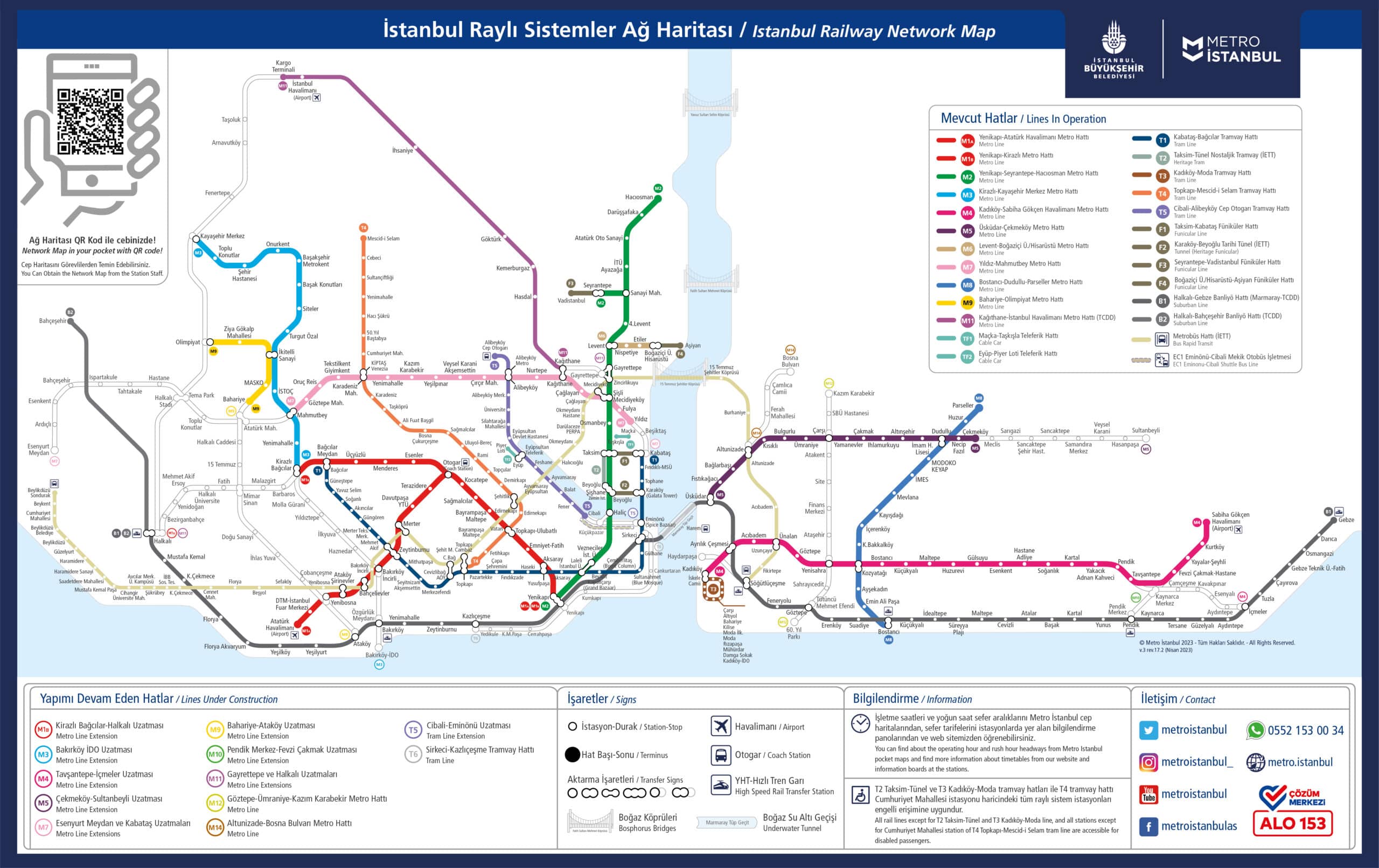
Istanbul, a city brimming with history, culture, and vibrant life, stands as a testament to the convergence of East and West. Its sprawling landscape, encompassing both European and Asian sides, presents a unique challenge for navigating its diverse tapestry of attractions. Fortunately, Istanbul’s extensive and constantly evolving metro system provides a reliable and efficient solution for traversing this urban expanse.
The Istanbul Metro: A Network of Modernity
The Istanbul metro network, operated by the Istanbul Metropolitan Municipality, comprises a comprehensive system of underground, elevated, and light rail lines. This network, spanning over 200 kilometers, serves as the city’s arterial transportation system, connecting major landmarks, business districts, and residential areas.
Understanding the System: A Breakdown of Lines and Connections
The Istanbul metro system consists of 10 operational lines, each identified by a distinct color and number:
- M1 (Red Line): This line connects Yenikapi to Atatürk Airport, traversing key areas like Aksaray, Beyazit, and Sirkeci.
- M2 (Blue Line): Extending from Yenikapi to Haciosman, this line passes through the bustling Taksim Square, Şişli, and Levent.
- M3 (Green Line): The Green Line connects Başakşehir to Kirazlı, offering access to important locations like Mecidiyeköy and Bakırköy.
- M4 (Yellow Line): This line runs from Kadıköy to Tavşantepe, traversing the Asian side of the city and connecting to the Marmaray line.
- M5 (Purple Line): Connecting Üsküdar to Çekmeköy, the Purple Line serves the Asian side, providing access to the historical district of Üsküdar.
- M6 (Brown Line): Extending from Boğaziçi University to Levent, the Brown Line offers a convenient connection to the financial district.
- M7 (Orange Line): This line connects Mecidiyeköy to Mahmutbey, offering a direct connection to the northern suburbs.
- M8 (Olive Line): Running from Bostancı to Dudullu, the Olive Line serves the Asian side, connecting to the M4 line.
- M9 (Turquoise Line): This line connects Başakşehir to Avcılar, offering a connection to the western suburbs.
- M11 (Pink Line): Connecting Gayrettepe to İstinye, the Pink Line offers access to the upscale district of İstinye.
Interconnectivity: Seamless Transfers and Connections
The beauty of the Istanbul metro lies in its extensive interconnectivity. Various lines intersect at strategic points, facilitating seamless transfers between different areas of the city. For instance, the M2 (Blue Line) intersects with the M1 (Red Line) at Yenikapi, allowing passengers to switch between the European and Asian sides. Similarly, the M4 (Yellow Line) connects to the Marmaray line at Üsküdar, providing a direct link to the historic peninsula.
The Marmaray: A Bridge Between Continents
The Marmaray, a high-speed rail line, stands as a testament to Istanbul’s engineering prowess. This underwater tunnel, traversing the Bosphorus Strait, connects the European and Asian sides of the city, offering a seamless and efficient journey. The Marmaray, integrated with the Istanbul metro system, provides a vital link for commuters and tourists alike.
Beyond the Metro: Complementary Transportation Options
While the Istanbul metro system offers a comprehensive network, other transportation options complement its reach. These include:
- Tramways: Istanbul boasts a network of tramways, particularly in the historic peninsula and along the Golden Horn. These trams offer a picturesque and leisurely mode of transport.
- Buses: Istanbul’s extensive bus network serves as a vital artery, connecting various neighborhoods and providing access to areas not directly served by the metro.
- Ferry Boats: Istanbul’s iconic ferries provide a unique and scenic way to traverse the Bosphorus Strait, offering breathtaking views of the city’s skyline.
Navigating the System: Tips for a Smooth Journey
- Istanbulkart: The Istanbulkart, a rechargeable travel card, offers convenient and cost-effective travel on the metro, trams, buses, and ferries.
- Maps and Apps: Utilize maps and mobile applications like Google Maps or Moovit to plan your routes and access real-time information on train schedules.
- Station Signage: Pay attention to station signage, which clearly indicates platform numbers, line directions, and transfer points.
- Peak Hours: Be mindful of peak hours, particularly during rush hour, as trains can be crowded.
FAQs: Addressing Common Queries
Q: How do I purchase an Istanbulkart?
A: Istanbulkart can be purchased at designated kiosks located at metro stations, ferry terminals, and tram stops.
Q: What is the cost of a single trip on the metro?
A: The cost of a single trip varies depending on the distance traveled. However, using an Istanbulkart generally offers the most affordable fares.
Q: Are there any discounts available for students or seniors?
A: Yes, discounted fares are available for students and seniors upon presenting valid identification.
Q: Are there any safety concerns regarding the metro system?
A: The Istanbul metro system is generally considered safe. However, as with any public transportation system, it is advisable to remain vigilant and take precautions against theft or pickpocketing.
Q: Is the metro system accessible for individuals with disabilities?
A: While the Istanbul metro system is gradually improving accessibility, some stations may not be fully accessible for individuals with disabilities.
Conclusion: A Vital Lifeline for Istanbul’s Growth
Istanbul’s metro system serves as a vital lifeline for the city’s bustling population. Its extensive network, interconnectivity, and integration with other transportation options facilitate seamless movement across the city, contributing to its economic growth and social progress. As Istanbul continues to evolve, its metro system remains a cornerstone of its urban infrastructure, ensuring efficient and convenient travel for its residents and visitors alike.
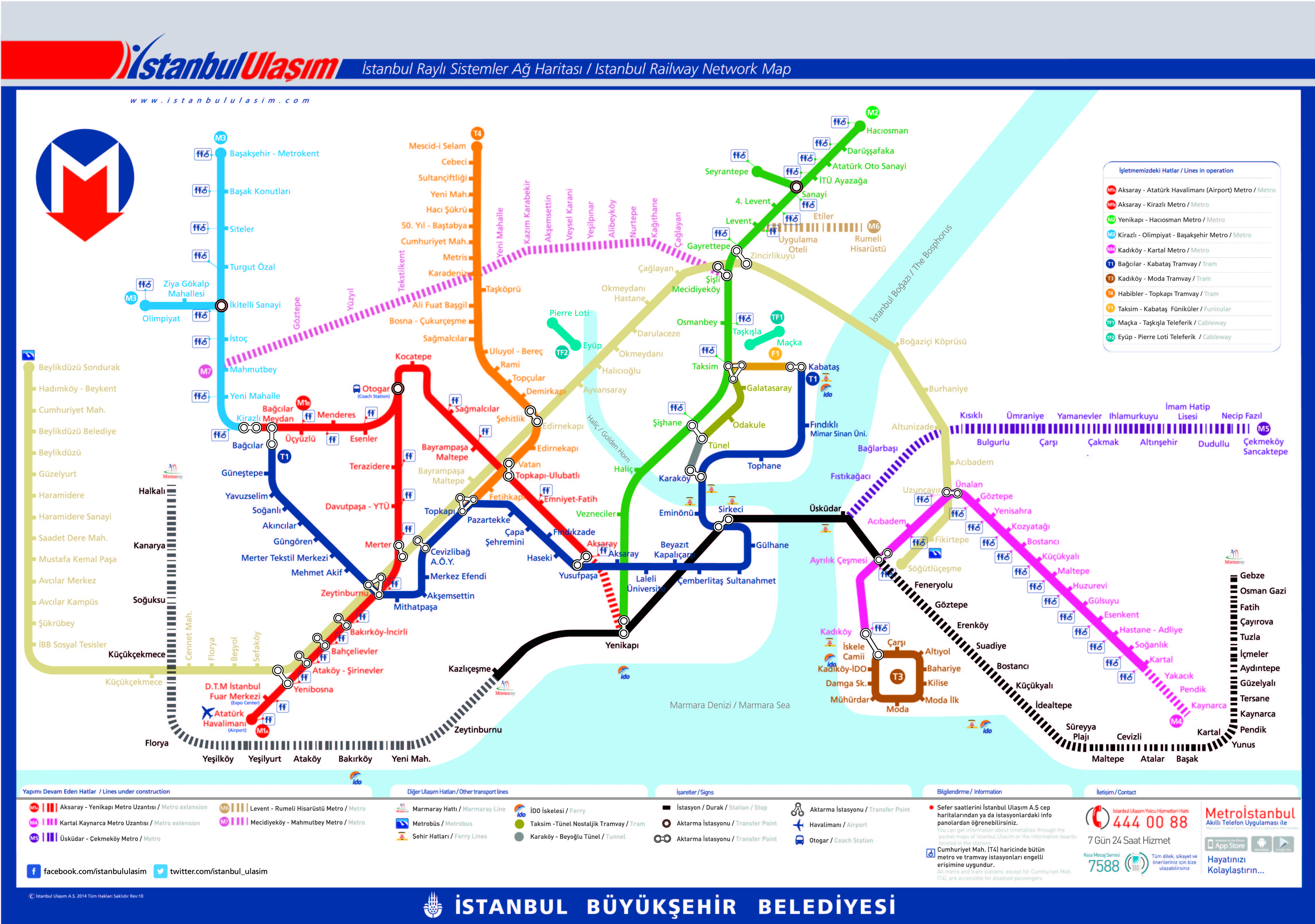


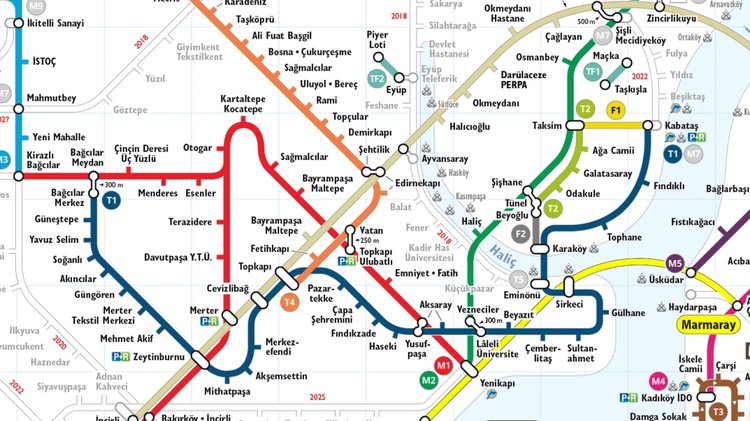
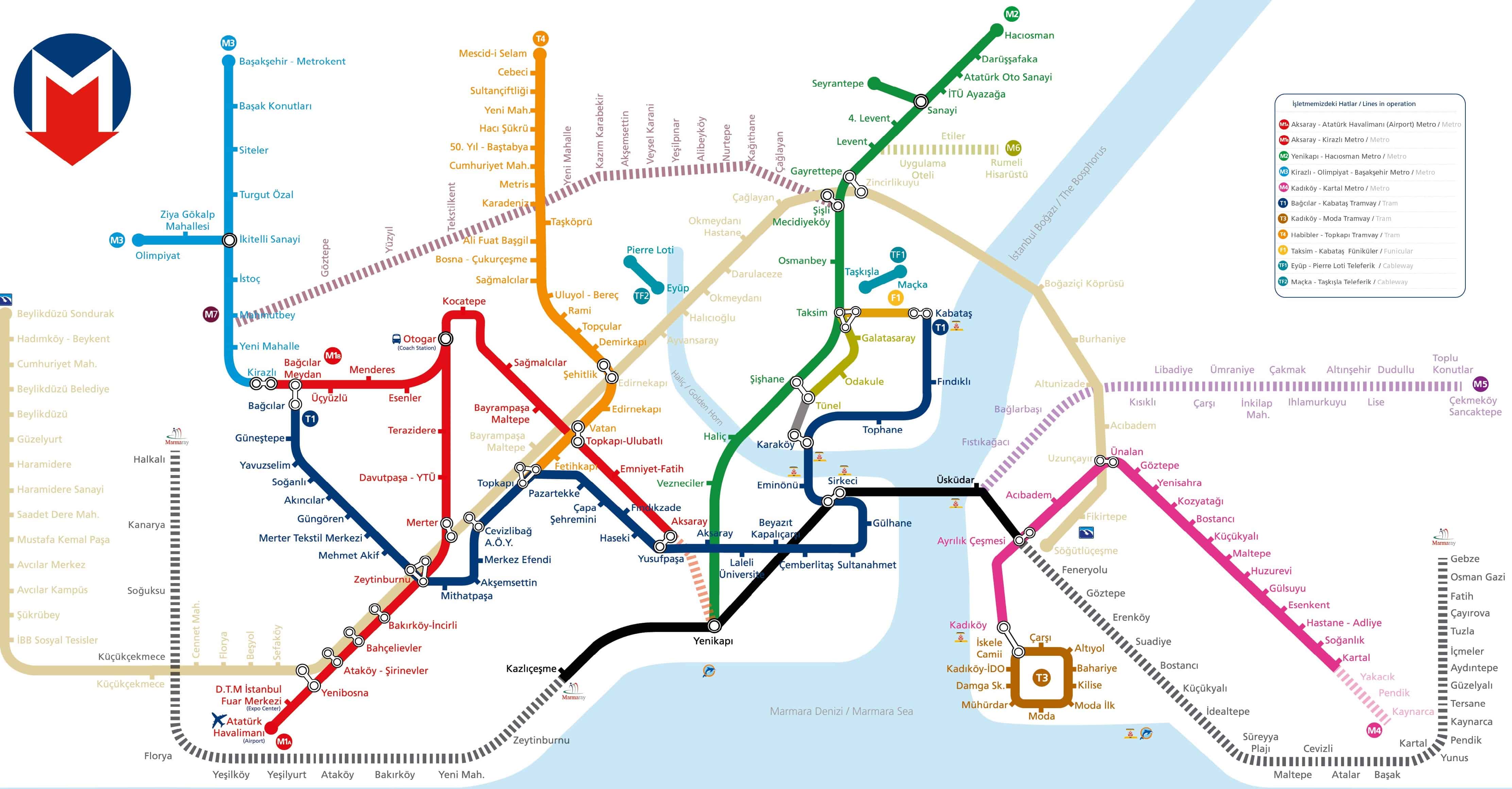

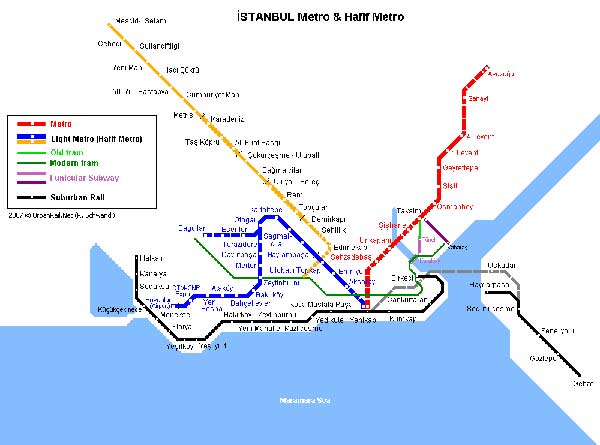
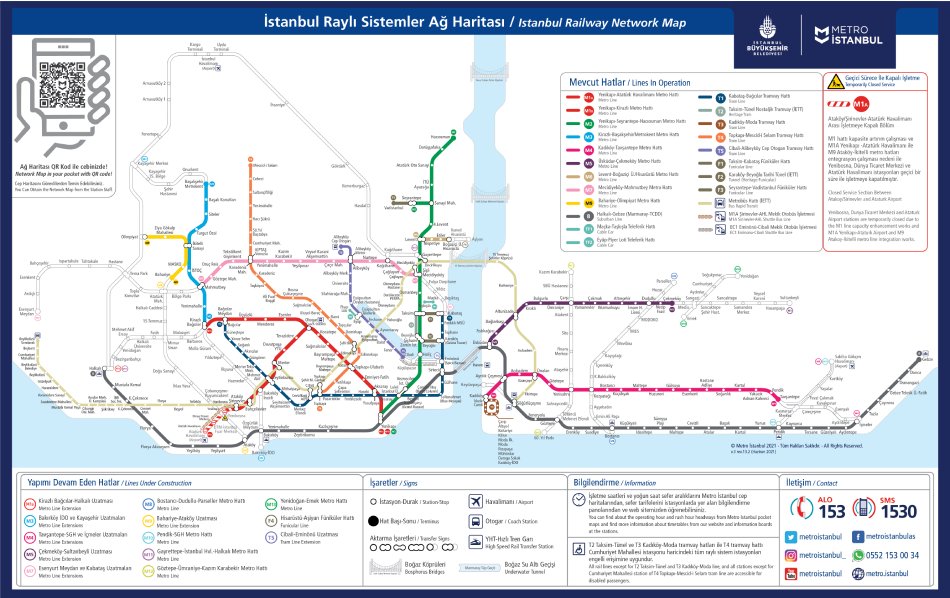
Closure
Thus, we hope this article has provided valuable insights into Navigating Istanbul: A Comprehensive Guide to the City’s Metro System. We thank you for taking the time to read this article. See you in our next article!